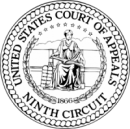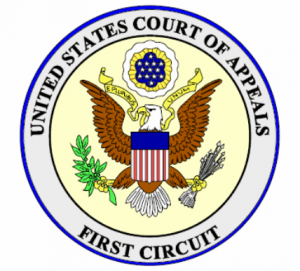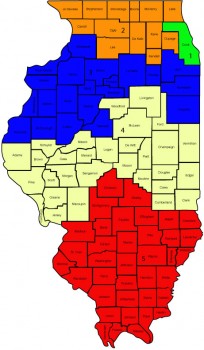The U.S. Court of Appeals for the Ninth Circuit recently held that the district court abused its discretion in denying a plaintiff’s motion to certify a class of home buyers alleging that a scheme involving a title insurer buying minority interests in title agencies in exchange for referral of future title insurance business violated the federal Real Estate Settlement Procedures Act (RESPA), affirming in part, vacating in part and remanding for further proceedings. In so ruling, the Court held that the Consumer Financial Protection Bureau’s position in its amicus brief was not entitled to Chevron deference, because the CFPB was…
Posts tagged as “Mortgage Law”
The Florida Second District Court of Appeal recently reversed a trial court’s order in a mortgage foreclosure action limiting the liability of a loan servicer who acquired title by foreclosure for past-due condominium assessments, holding that the trial court lacked subject matter jurisdiction because the specific issue of assessments was not litigated or adjudicated by the trial court. A copy of the opinion is available at: Link to Opinion. The owner of a condominium unit failed to pay his mortgage loan, resulting in the loan servicer suing to foreclose the mortgage and obtaining title at the foreclosure sale as the…
The Florida Second District Court of Appeal recently upheld a mortgagee’s notice of default that substantially complied with the applicable provision of the mortgage, ruling that strict compliance is not required. A copy of the opinion is available at: Link to Opinion. The borrowers obtained a mortgage in May 2007 and defaulted in November 2008. In December 2008, the mortgagee sent the borrowers a letter demanding that they cure the default within 30 days, providing the amount needed to reinstate the loan, and warning that failure to cure would result in acceleration and foreclosure. In February 2009, the mortgagee filed…
The U.S. Court of Appeals for the Ninth Circuit recently affirmed a district court’s dismissal of a borrower’s claims for breach of contract and breach of fiduciary duty relating to alleged failures to properly disburse escrow amounts against a non-servicer assignee of a mortgage loan. In so ruling, the Court confirmed that Washington does not bar splitting the loan servicing duties from the right to receive payment under the note. A copy of the opinion is available at: Link to Opinion. The deed of trust between the borrower and the loan originator required the borrower to pay the hazard insurance…
The U.S. Court of Appeals for the First Circuit recently affirmed the dismissal of two mortgagors’ quiet title allegations against a mortgagee, holding that the plaintiff mortgagors could not assert a quiet title claim under Rhode Island law against the mortgagee defendants because Rhode Island is a title theory state, and the mortgagors’ equitable interest in title to the property at issue was not adverse to the mortgagee’s legal interest in title. A copy of the opinion is available at: Link to Opinion. The plaintiff mortgagors (one of whom is an attorney) claimed uncertainty as to which entity held an…
The Court of Appeal of the State of California, Second Appellate District, recently reversed a trial court’s dismissal of a complaint alleging a servicer violated California’s Homeowner Bill of Rights by proceeding with a trustee’s sale when the servicer and the borrowers were allegedly exploring a loan modification. In so ruling, the Appellate Court made two key holdings: First, the Appellate Court held that a borrower does not need to tender the balance due prior to instituting a suit for alleged violation of the HBOR. Second, the Appellate Court also held that a borrower’s failure to timely provide the documents…
The Illinois Appellate Court, First District, recently affirmed a trial court’s final order in a foreclosure, refusing to vacate summary judgment in favor of the mortgagee, even though the notice of the relevant motions was mailed directly to the borrowers and not their attorney of record, and was originally missing the time of the hearing and the date it was mailed, and even though the borrowers argued that the trial court used the wrong interest rate to calculate the amounts due at sale. In so ruling, the Appellate Court held that the Illinois statutory rate of 9% interest is to…
The federal Consumer Financial Protection Bureau issued a brief press release yesterday, confirming reports that it would be issuing a proposed amendment to delay the effective date for the “Know Before You Owe” TILA-RESPA Integrated Disclosure (TRID) rule until Oct. 1, 2015. A copy of the press release is available at: Press Release. The press release simply states: “The CFPB will be issuing a proposed amendment to delay the effective date of the Know Before You Owe rule until October 1, 2015. We made this decision to correct an administrative error that we just discovered in meeting the requirements under federal law,…
A prominent property services company recently reached a $1 million settlement with the Illinois Attorney General, resolving allegations that the property services company supposedly wrongfully “locked Illinois residents out of their homes before a foreclosure was finalized,” and requiring the company to submit to 40 new operating standards with monitoring as to compliance. A copy of the Illinois Attorney General’s press release is available here. The Illinois Attorney General stated that the company was “hired by mortgage lenders to determine whether homeowners in default or facing foreclosure are living in their homes. If a property is deemed vacant, [the company]…
The Illinois Appellate Court, First District, recently affirmed the dismissal of a borrower’s petition seeking to vacate a default judgment and order approving sale entered in a mortgage foreclosure action, holding that the borrower waived proper service of the foreclosure complaint. A copy of the opinion is available at: Link to Opinion. The mortgagee sued to foreclose its mortgage under the Illinois Mortgage Foreclosure Law in November 2011. The borrower was served by substitute service shortly thereafter and, approximately five months thereafter, the mortgagee moved for entry of a default. The borrower appeared at the hearing on the mortgagee’s motion for default,…
In response to a letter from numerous Senators, and in response to “considerable input” from other members of Congress and various trade groups, the Consumer Financial Protection Bureau today announced that it will employ leniency in relation to implementation of the TILA-RESPA Integrated Disclosure Rule. The CFPB’s letter states that the CFPB “will be sensitive to the progress made by those entities that have squarely focused on making good-faith efforts to come into compliance with the Rule on time,” and that the approach “is consistent with the approach we took to implementation of the Title XN mortgage rules in the early months…
The U.S. Supreme Court recently held that a debtor in a Chapter 7 case cannot “strip-off” or void a wholly unsecured junior mortgage under section 506(d) of the Bankruptcy Code. A copy of the opinion is available at: Link to Opinion. The debtors in the consolidated cases both had two mortgages on their homes. The petitioner held a second-position mortgage on each of the homes. The senior mortgage on each home exceeded its fair market value, meaning that the junior mortgages were entirely unsecured and “underwater.” Each debtor moved to “strip-off” or void the junior mortgage liens pursuant to section 506(d)…










